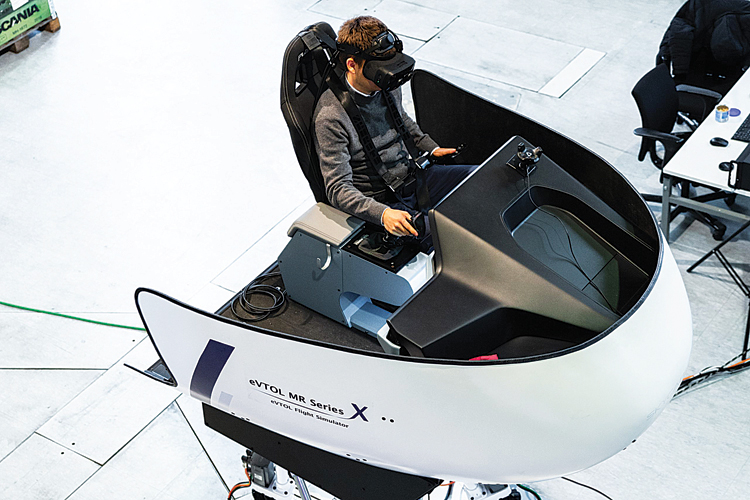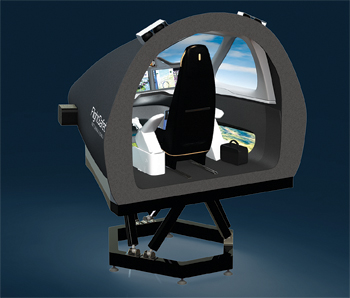INDIAN ARMED FORCES CHIEFS ON OUR RELENTLESS AND FOCUSED PUBLISHING EFFORTS

The insightful articles, inspiring narrations and analytical perspectives presented by the Editorial Team, establish an alluring connect with the reader. My compliments and best wishes to SP Guide Publications.

"Over the past 60 years, the growth of SP Guide Publications has mirrored the rising stature of Indian Navy. Its well-researched and informative magazines on Defence and Aerospace sector have served to shape an educated opinion of our military personnel, policy makers and the public alike. I wish SP's Publication team continued success, fair winds and following seas in all future endeavour!"

Since, its inception in 1964, SP Guide Publications has consistently demonstrated commitment to high-quality journalism in the aerospace and defence sectors, earning a well-deserved reputation as Asia's largest media house in this domain. I wish SP Guide Publications continued success in its pursuit of excellence.
Flying into the Future
The intricate demands of navigating eVTOLs in bustling urban landscapes necessitate pilots with flawless training, unparalleled decision-making abilities and the capacity to navigate uncharted challenges effortlessly

The forthcoming eVTOL (electric vertical take-off and landing) market is poised to revolutionise the aviation industry, marking a significant milestone in 2025 with the introduction of the first commercial eVTOL flights. Aircraft manufacturers have invested years of unwavering dedication, sleepless nights, and visionary dreams to capture the world’s attention with these silent aircraft, featuring innovative configurations capable of performing inter- and intra-city operations that were previously inaccessible to the public.
The growing demand for pilots is already a pressing issue in the aviation industry, with airlines worldwide competing to attract new recruits to their ranks. By 2030, an additional quarter of a million fixed-wing pilots will be required for civilian operations. Consequently, the emergence of a burgeoning new aviation sector that necessitates qualified pilots might seem like unfortunate timing. However, if the vision of commercial eVTOL flights is to become a reality, operators must ensure they have access to the right pilots.
The initial group of eVTOL pilots will face intense scrutiny, as they will not only fly the first passengers but also do so under the watchful eye of the media. The source of these “top gun” pilots and the methods employed by the airline industry to ensure their suitability for the job are crucial questions. Federal Aviation Administration (FAA) has made it clear that the first eVTOL pilots will hold commercial pilot licenses (CPL) and will undergo a transition course. In the European Union Aviation Safety Agency (EASA) jurisdiction, eVTOL pilots will possess either an airplane CPL or a helicopter CPL, supplemented by an eVTOL-specific type rating. The regulators expect eVTOL pilots to meet the same hour requirements as current operators, ruling out the possibility of candidates with no prior aviation experience. Additionally, the operators themselves prioritise highly experienced individuals who can handle the challenges of operating singlepilot flights on high-visibility routes into densely populated city centres.
To ensure safety, airlines will tap into their pool of highly skilled and experienced pilots, often referred to as “top-gun pilots,” to spearhead these initiatives. These pilots are intimately familiar with their airline’s safety culture and will be entrusted with the responsibility of flight testing and leading the way in this new era of aviation. It is not only their temperament that makes them well-suited for flying eVTOLs but also their decision-making skills. eVTOL pilots will navigate unfamiliar urban environments, possibly requiring skillsets similar to those of helicopter pilots. The complexities such pilots will encounter include operating in urban canyons, dealing with micro weather patterns, managing communication dead zones, and making rapid decisions in dense airspace where multiple vehicles share condensed air traffic corridors.
eVTOL PILOT TRAINING
There are a number of companies that are currently providing eVTOL pilot training. These companies offer a variety of training programmes, ranging from ab initio training for those with no prior flight experience to transition training for pilots who already hold a commercial pilot’s license. The training programmes typically include both simulator and flight training, and they cover a range of topics, including Aircraft systems, Flight controls, VTOL operations, Emergency procedures and Airspace regulations.

The details of eVTOL pilot training programmes vary from company to company, but there are some common elements. All eVTOL pilot training programmes include theoretical training on the principles of eVTOL flight. This training typically covers topics such as aerodynamics, propulsion, and flight controls.
In addition to theoretical training, all eVTOL pilot training programmes include simulator-based training. Simulator-based training allows pilots to practice the skills they need to fly eVTOL aircraft in a safe and controlled environment. This training is typically conducted in a full-motion simulator that replicates the flight characteristics of the eVTOL aircraft. The simulator training allows pilots to practice the different flight modes of the aircraft, including vertical take-off and landing, as well as normal and emergency procedures. The flight training is typically conducted in a light aircraft that has similar flight characteristics to the eVTOL aircraft. The flight training allows pilots to practice the different flight modes of the aircraft in a realworld environment.
eVTOL pilot training is essential for navigating the complexities of this transformative industry, preparing pilots for the future of air travel
The length of eVTOL pilot training programmes also varies from company to company. Some programmes can be completed in as little as six weeks, while others can take up to six months. The cost of eVTOL pilot training varies from company to company and depends on a number of factors, including the type of training programme, the aircraft used for training, and the experience of the instructor.
LILIUM AND FLIGHTSAFETY INTERNATIONAL SIGN FLIGHT SIMULATOR AND TRAINING AGREEMENT

Lilium N.V., developer of the first all-electric vertical take-off and landing (eVTOL) jet, has agreed to partner with premier professional aviation training company, FlightSafety International (FSI). Future pilots and mechanics will be qualified by FlightSafety International in their industryleading training devices and State-of-the-art flight simulator representing the Lilium Jet will support type-certification.
The agreement establishes FlightSafety as the exclusive developer and provider for flight training devices for the Lilium Jet. This will include industry-leading, immersive, and mixed reality simulators for training, as well as an early flight simulator representative of the Lilium Jet cockpit, to be used by Lilium engineers. Additionally, FSI will develop and deliver training programmes, including online training programme modules, for qualification of future Lilium pilots and mechanics worldwide.
Sebastien Borel, Chief Commercial Officer, Lilium said, “This partnership represents another critical milestone that will support the Lilium Jet’s progress through certification and commercial launch. Thanks to FSI’s vast experience and expertise in the field of aircraft simulators, we look forward to enabling all Lilium pilots to get familiar with our aircraft before commercial launch.”
Nathan Speiser, EVP Sales and Marketing, FlightSafety International said, “It is our mission to deliver best-in-class pilot training, globally, while working with new partners to bring new, sustainable modes of transport with cost effective training capabilities. We are excited to be working with leading eVTOL manufacturer Lilium, to advance and deliver training that empowers and prepares pilots for the world of eVTOL flight.”
FSI continues to support the emerging Advance Air Mobility (AAM) market with the latest innovative and cutting-edge technology to support distance learning training curriculums and the latest advances in training device manufacturing.
FAA REGULATIONS
The Federal Aviation Administration (FAA) recognises that powered-lift aircraft, defined as heavier-than-air vehicles capable of vertical take-off, vertical landing, and low-speed flight, will soon enter the civilian market with complex designs and varying degrees of automation. These aircraft are expected to perform diverse operations, including transportation to offshore oil rigs, air ambulance services, and urban air taxis. To address these advancements, the FAA proposes permanent changes to pilot certification and operation regulations in parts 61, 135, and 142, along with temporary changes through a Special Federal Aviation Regulation (SFAR). These modifications aim to train and certify powered-lift pilots and instructors, create temporary alternatives for airman certification, remove operational barriers, and mitigate safety risks. The proposed SFAR would be effective for a duration of 10 years.
Furthermore, powered-lift aircraft will play a significant role in supporting the deployment of AAM operations, which encompass revolutionary new aircraft for moving people and cargo, such as air taxis and eVTOL aircraft. Congress has directed the Department of Transportation to establish an advanced air mobility working group to coordinate efforts for integrating these aircraft into the national airspace.
Overall, this rulemaking is a vital step in facilitating the safe and equitable integration of powered-lift and AAM solutions into the national airspace. By establishing clear regulations, the FAA aims to promote competition and enable these innovative aviation technologies to enter the market, revolutionising air travel.
CONCLUSION
As of now, there are 36 traditional companies with Aircraft Operator’s Certificates (AOC) that have placed orders for eVTOL aircraft. These operators vary in terms of their maturity and readiness, with some waiting for aircraft programmes to progress before dedicated planning, while others have advanced operational planning teams collaborating with local stakeholders.
The upcoming eVTOL market represents a significant leap forward for the aviation industry. Pilots selected for these pioneering flights will face immense pressure, requiring nerves of steel and the ability to operate under intense media scrutiny. Airlines and Operators of eVTOLs will rely on their most experienced pilots, known for their expertise and adherence to safety protocols, to ensure the success of these early routes. The demanding nature of flying eVTOLs in urban environments necessitates pilots with exceptional decision-making skills and the capacity to handle unfamiliar challenges.
This will put the pilot training as the most crucial aspect of transitioning to be an eVTOL pilot. eVTOL pilot training is a complex and challenging endeavour, but it is also a rewarding one. eVTOL pilots will be responsible for the safe operation of these new aircraft, and they will play a vital role in the future of urban air mobility. The future of eVTOL pilot training is still uncertain, as the regulatory environment for eVTOL aircraft is still being developed. However, it is clear that there will be a significant demand for eVTOL pilots in the coming years. As the eVTOL industry continues to grow, we can expect to see more training companies offering eVTOL pilot training programmes.
The race to be at the forefront of this transformative industry has already begun, with numerous airlines positioning themselves as early adopters by placing orders and making preparations for the deployment of eVTOLs. Correct training of these pilots that ensures safety of passengers and cargo will determine the success and adoption of eVTOLs.





